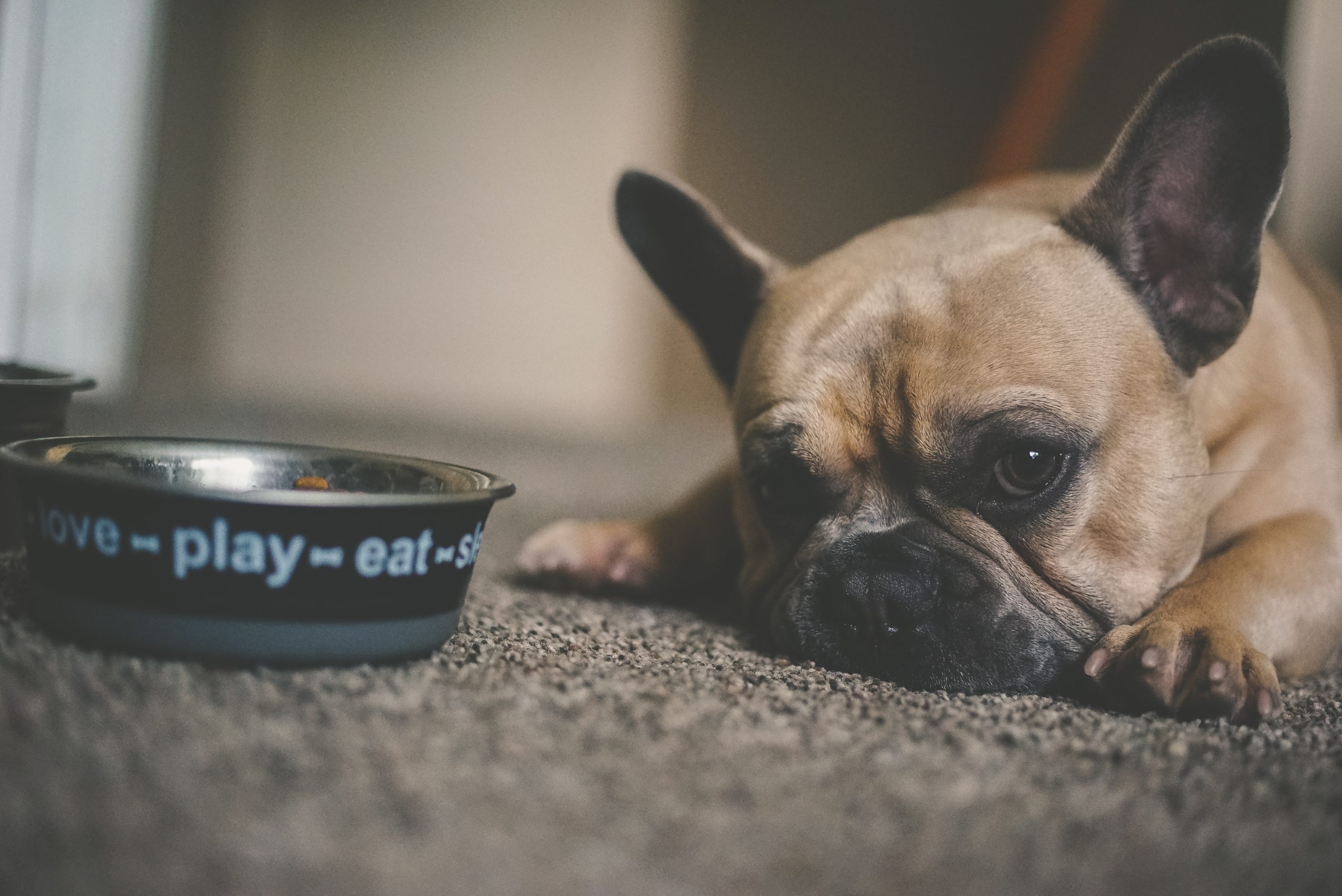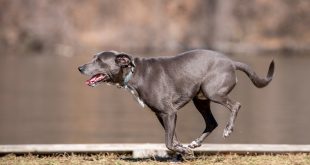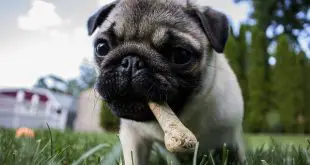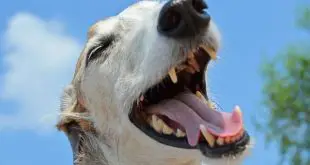This post may contain affiliate links. Please read our disclosure.
All pet owners have probably been there one way or another. You put the food down for your beloved dog, and they just turn their nose up at it. It’s frustrating, especially when you know your pup is usually a good eater and hasn’t eaten today. The question is, why isn’t your dog eating his food anymore?
As an owner myself, I know it can be hard to watch your pup suffer through a lack of appetite, but understanding why your pet is not eating can help you find a solution to get them back to their normal self. In this article, we’ll explore some of the most common reasons why a dog might stop eating and what you can do to help them.
One important thing to note, is that a loss of appetite can sometimes (rarely) be a sign of a more serious medical issue. If your dog is showing other symptoms along with not eating such as vomiting, diarrhea, or lethargy, it’s best to contact your veterinarian right away.

Article Contents
Stress and Anxiety in Dogs
One of the most common reasons why a dog might suddenly stop eating is due to stress or anxiety. Dogs are incredibly sensitive to their environment and can easily become overwhelmed by simple changes in their routine or environment. If your pup is feeling anxious or stressed, it can manifest in a variety of ways, including a lack of appetite.
If you believe that the lack of appetite in your dog is due to stress, there are a few things you can do to help. First, try to identify the source of your pet’s stress. This could be anything from a recent move or a change in the family dynamic to a new pet in the house. Once you identify the source, you can take precautions to alleviate it by helping them get accustomed to the new source or by taking that source away completely.
By removing the source of stress, you can also try to make a few changes in your pup’s environment to make them feel more secure. Simple things like providing a quiet place to relax (such as a kennel/crate), keeping their toys and bedding in the same place, and providing plenty of exercise and playtime can go a long way in getting your old dog back to normal and feeding regularly.
Food Sensitivities in Dogs
The second most common cause of a dog not eating is food sensitivities or allergies. Just like us humans, dogs can have sensitivities issues to certain ingredients in their food. The most common food that dogs have allergies too is proteins, especially those from dairy products, beef, lamb, chicken, chicken eggs, soy or gluten (from wheat). However, usually if its food sensitivity, the dog will show other signs such as scratchy or itchy skin as well as a lack of appetite.
If you think your pup has a food sensitivity, it’s important to talk to your vet. Your vet can help you narrow down the potential culprits and help you find a food that is better suited to your pup’s needs. You might have to do an elimination diet with your dogs food until you find one that they aren’t showing any signs of sensitivities too.
Bored with their Food
If you’ve been feeding your pup the same food for a while, they may just be bored with eating the same thing over and over again. Just like humans, dogs can get sick of eating the same thing day after day (imagine mac and cheese everyday). If you think boredom may be the cause of your pup’s lack of appetite, try mixing things up with a variety of different flavors and textures. You can also try adding a bit of wet food or some plain cooked vegetables to your pup’s kibble to make it more interesting. I know my dog always loves having we food added to his meal every once in a while, however this could cause loose bowel movements so be prepared for that.
Age–Related Changes in Your Dog
As your dog ages, their appetites can change. Senior dogs may eat less due to decreased energy levels or a slower metabolism. Additionally, elderly dogs can suffer from dental issues which can make it difficult for them to eat (especially if they started to lose some of their teeth). If your pup is getting older (around 10), it’s important to talk to your vet about ways to make sure your pup is getting the nutrition they need.
Conclusion: Why is My Dog Not Eating
When it comes to understanding why your pup isn’t eating, it’s important to keep in mind that there isn’t a one–size–fits–all answer. Every dog is different and the cause of their loss of appetite can vary. If your pup’s appetite loss is sudden or persists for more than a few days, it’s best to contact your veterinarian right away.
READ MORE:
 Petnile Comprehensive Pet Care Guides
Petnile Comprehensive Pet Care Guides



